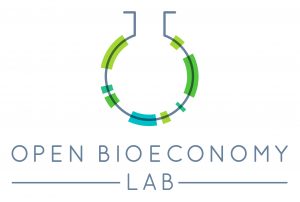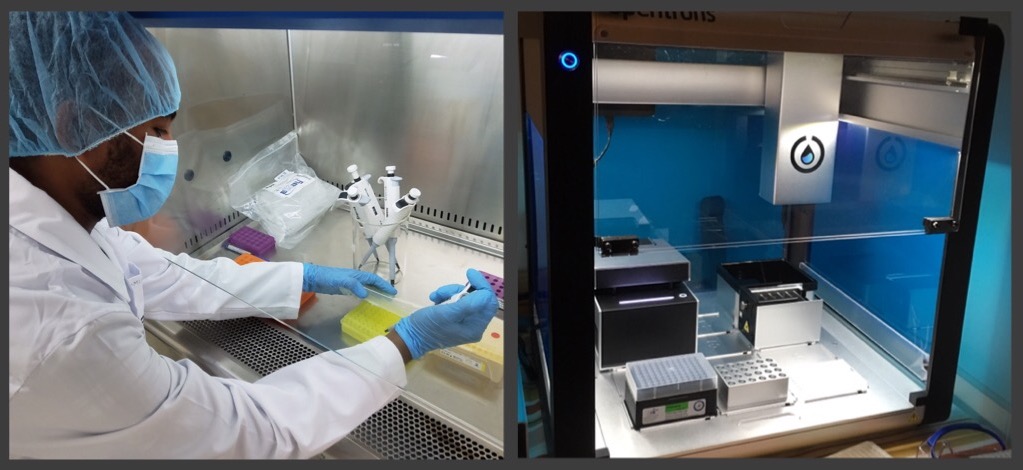Automation of RNA extraction for diagnostic of Covid-19 testing offers crucial opportunities to reduce the times and increase the number of samples processed per day. The Open Bioeconomy Lab in partnership with the Ethiopian Biotechnology Institute (EBTi, Addis Ababa) was granted a Cambridge-Africa Alborada Fund to scale up COVID-19 testing in Ethiopia, which will allow the Institute to purchase an OpenTrons liquid handling platform.
The main method used for automated nucleic acid extraction involves the use of magnetic beads although the moving to this method will require several months of validation as well as the approval for its use in diagnostics by the local sanitary authorities. From a technical workflow perspective, bead pelleting time can also be a bottleneck and sample processing capacity per day is of key importance to EBTi.
In order to provide a faster response, we are studying how to automate the existing silica column-based RNA extraction protocol being currently used in EBTi. The most time-consuming step of this protocol involves the washing steps and the transfer of individual columns to the centrifuge, which also represents the main challenge to the automation.
To overcome this problem, we imagined an open-source vacuum manifold. The Institute for Development of Advanced Applied Systems (IRNAS, Maribor, Slovenia) is bringing our idea to life by designing a vacuum manifold that will be fully compatible with the OpenTrons base plate.
This system is composed of a base control unit on which two vacuum manifolds are placed. It is designed as a standalone benchtop system, but it is fully compatible with the OpenTrons mechanics. The manifold was conceptualized to allow a high degree of control and flexibility as the valve system enables vacuum switching each manifold on the unit individually. The modular design allows for simple scalability as it is designed such that multiple units can be placed on the OpenTrons deck when a higher throughput is required.
Stay tuned for updates via http://openbioeconomy.org and @openbioeconomy


